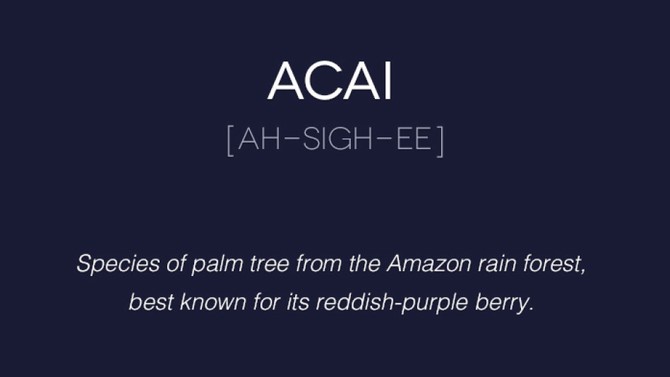7 Words You Might Be Saying Wrong
These of-the-moment words (see especially slide 2) are often mispronounced. The authors of You're Saying It Wrong are here to help.
By Ross Petras and Kathryn Petras
acai
It's not "ACK-ah-ee", it's not "ah-KAI," and it's not "ah-SIGH." It's "ah-sigh-EE," with a soft c and a stress on the last syllable.
For the spelling that tricks many English speakers, you can blame the early Portuguese explorers of Brazil, who saw indigenous rainforest people eating a strange and luscious palm tree berry that they called in their Tupi-Guarani language ïwaca'i (something that cries or expels water).
The Portuguese wrote this down as açaí, but in Portuguese the c comes with a squiggly cedilla at the bottom that makes the c sound soft, and there's an accent on the i. The result is something very close to the original pronunciation. Since English doesn't come equipped with softening cedillas and accents, the result is a very untasteful rendering of a very tasty fruit.
For the spelling that tricks many English speakers, you can blame the early Portuguese explorers of Brazil, who saw indigenous rainforest people eating a strange and luscious palm tree berry that they called in their Tupi-Guarani language ïwaca'i (something that cries or expels water).
The Portuguese wrote this down as açaí, but in Portuguese the c comes with a squiggly cedilla at the bottom that makes the c sound soft, and there's an accent on the i. The result is something very close to the original pronunciation. Since English doesn't come equipped with softening cedillas and accents, the result is a very untasteful rendering of a very tasty fruit.
Published 10/28/2016


